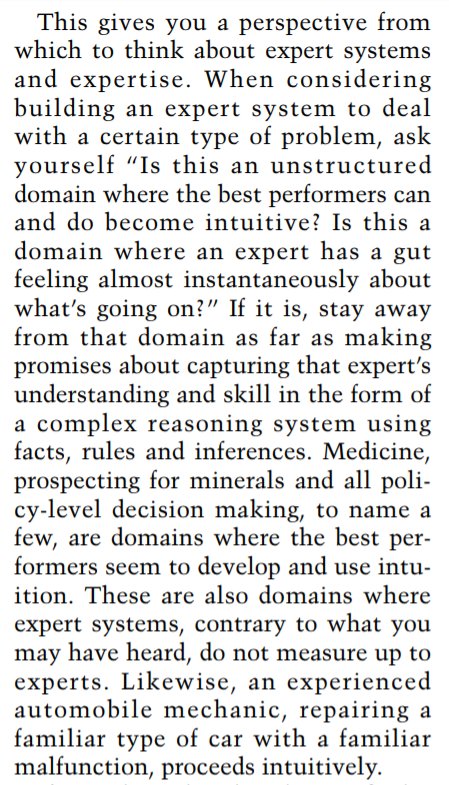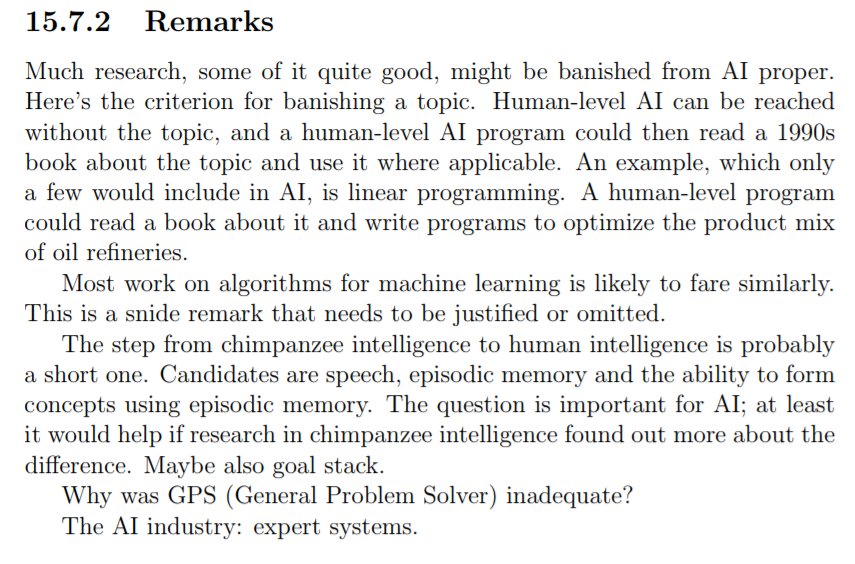Remarkable how the taxonomy of research areas roughly resembles today - learning, planning, etc at high level, lower stuff like exploration/hierarchy, etc
As most folks know, AI has gone through many phases. Now deep learning is all the rage, and once expert systems were all the rage. People had the same sorts of discussions about excess hype, AI winters, robustness, etc.
aaai.org/ojs/index.php/…
pdfs.semanticscholar.org/f6aa/427bf112a…









